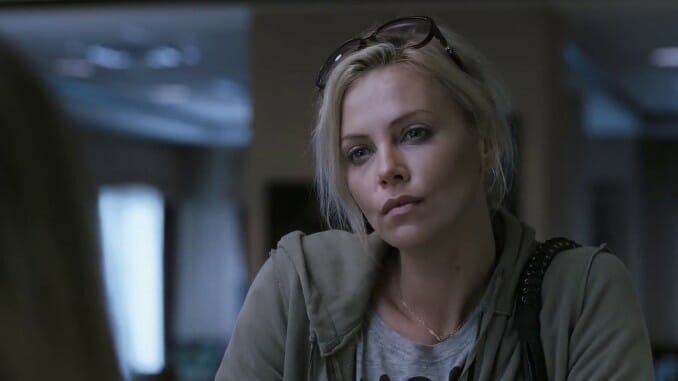How Young Adult‘s Deconstructed Cringe-Comedy Subverts Schadenfreude

If someone asks you why you like comedic cinema, you’ll probably be inclined to answer simply: Because it feels good to laugh. And, yes, that’s true; but don’t lie to yourself. This is a safe space. Whether or not you’re cognizant of it, there’s more to the picture than that. Indeed, one of the main reasons that we all like comedy is because we like watching people make fools out of themselves. And when examining the medium’s genesis, this is totally unsurprising, as comedic cinema was more or less born from slapstick routines: Watching characters be put through the wringer. Although the popularity of slapstick has largely declined at the hand of a contemporary affinity for cringe-based humor popularized by the mid-2000s phenomenon of things like The Office and Borat, a good comedy featuring someone humiliating themselves has remained a cornerstone of the genre.
In many ways, the 2011 dramedy Young Adult fits these cringe-humor prerequisites. Directed by Jason Reitman—who followed his father Ivan Reitman into comedy filmmaking by helming things like Juno and a couple episodes of The Office (both grounded in humiliation-based humor)—and written by Juno’s Diablo Cody, Young Adult is a bleak tragicomedy about a middle-aged woman who refuses to leave her high-school glory days behind. But despite the film largely resembling a regular comedy, by interrogating but then rebuffing comedic conventions established by shows like The Office, and Saturday Night Live (on which Reitman added an extra dose of actors making themselves look ridiculous), Young Adult begs the question: What happens when the tenet of schadenfreude is implemented in a comedy, but not used for comedy’s sake?
Mavis (Charlize Theron) is a successful author and, of course, effortlessly and exquisitely beautiful. But she’s not a good person. She mocks others, neglects her helpless Pomeranian, and, most of all, is hellbent on stealing back her high school sweetheart Buddy (Patrick Wilson) despite him being a happily married new father. And while Young Adult is an undeniably funny film (Mavis conspicuously sneaking her pooch into a hotel stands out in particular), the moments where she humiliates herself (and there are a lot) are largely not. To fully appreciate Reitman’s dissection and subversion of this technique, perhaps it would be beneficial to understand why it appeals to us so much in the first place.
The way I see it, there are three reasons schadenfreude is so effective in comedy. First, the ability to humiliate oneself onscreen demonstrates remarkable vulnerability from our favorite actors. Through this, the filmmakers gain our trust, and allow us to feel more connected to the film. And on a semi-sadistic level, these kinds of films and performances remind us that, well, we don’t have it all that bad.
-

-

-

-

-

-

-

-

-

-

-

-

-

-

-

-

-

-

-

-

-

-

-

-

-

-

-

-

-

-

-

-

-

-

-

-

-

-

-

-








































